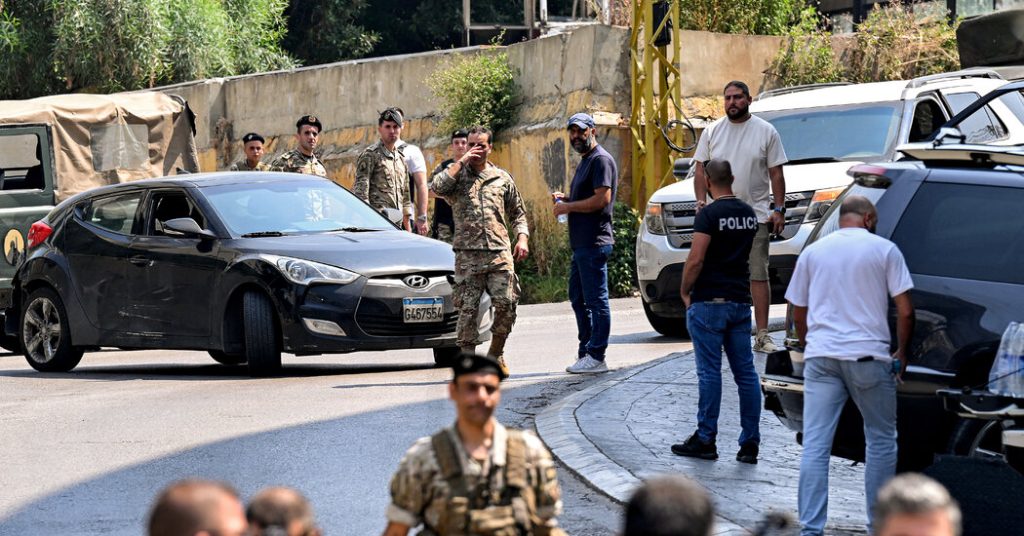A gunman opened fire on the U.S. Embassy in Lebanon, which resulted in a security guard being wounded and ultimately captured by Lebanese security forces. The motives of the shooter, a Syrian citizen, were not immediately clear, and a second man was later detained on suspicion of involvement in the attack. The incident occurred amidst mounting tensions in Lebanon, which has been experiencing cross-border strikes between Israel and Hezbollah, leading to a crisis-like situation. The Lebanese Army conducted raids in the eastern village of Majdal Anjar, near the Syrian border, in connection to the attack.
During the attack on the embassy, security forces and the embassy’s security team responded to small-arms fire near the entrance of the compound in Beirut. Witnesses reported a gunfight lasting nearly half an hour before the shooter was eventually shot and detained. Despite the intense situation, the Lebanese caretaker prime minister assured that the situation was stable and confirmed that the American ambassador was out of the country during the incident. This was not the first time the embassy had been targeted, as a similar attack occurred in September, and demonstrators clashed with security forces in October after a deadly explosion in Gaza.
The U.S. Embassy in Lebanon has been a target of violence in the past, prompting security measures, including the relocation of the embassy from central Beirut to the suburb of Awkar after a suicide bombing in 1983. The U.S. has a significant presence in Lebanon, providing extensive financial assistance to the armed forces and playing a key role in the region. The embassy is set to move to a larger site, spanning 43 acres, which will make it one of the largest U.S. diplomatic missions worldwide. Tensions in Lebanon have been heightened due to ongoing conflicts between Israel and Hezbollah, adding to the uncertainty in the country amid political and economic challenges.
The attack on the U.S. Embassy in Lebanon comes at a time when the nation is already facing a deepening crisis, with political instability and economic challenges exacerbating the situation. The incident highlights the broader security concerns in the region, where tensions between various factions have the potential to escalate into violence. The involvement of a Syrian citizen in the attack raises questions about potential cross-border connections and threats posed by external actors. The incident serves as a reminder of the volatile nature of the Middle East, where conflicts and security threats are ever-present.
The response to the attack on the U.S. Embassy in Lebanon underscores the importance of maintaining security measures and vigilance in the face of potential threats. Lebanese security forces were able to swiftly respond to the attacker, preventing further casualties and ensuring the safety of embassy personnel. The incident serves as a wake-up call for authorities to remain alert and prepared for similar attacks in the future, as tensions remain high in the region. The coordination between Lebanese and U.S. authorities in handling the situation reflects the need for continued cooperation in addressing security challenges and maintaining stability in the country.
Overall, the attack on the U.S. Embassy in Lebanon highlights the complex security dynamics in the region, where various actors are engaged in ongoing conflicts and power struggles. The incident serves as a reminder of the fragile nature of the political and security situation in Lebanon, where tensions can escalate quickly and lead to violence. The involvement of a Syrian citizen in the attack raises concerns about potential cross-border threats and external influences in the country. As Lebanon navigates through a period of crisis, it will be crucial for authorities to remain vigilant and proactive in addressing security challenges and safeguarding the well-being of citizens and diplomatic personnel.


